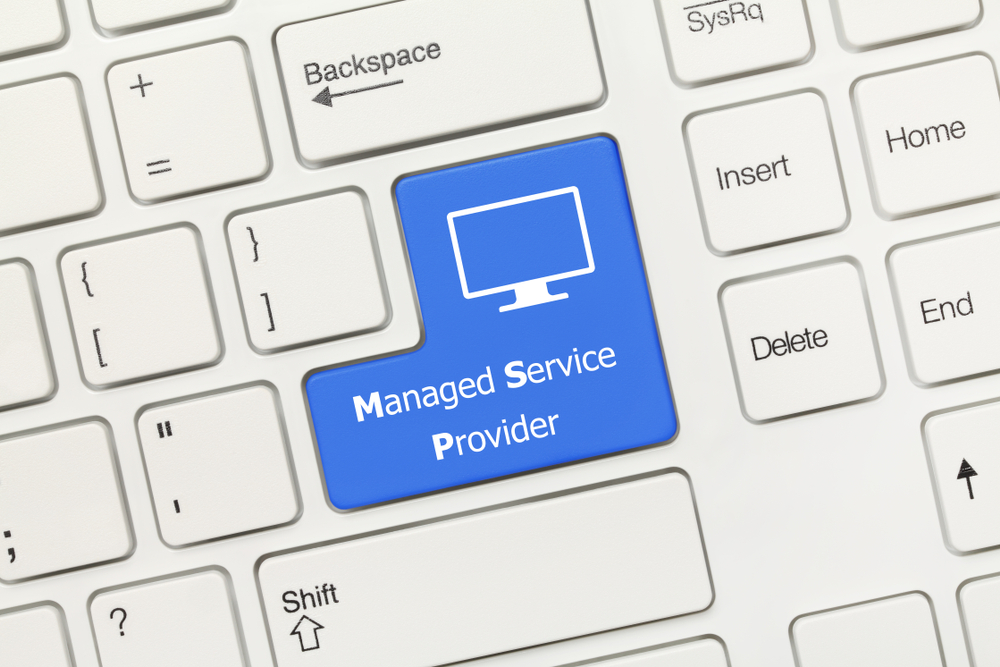
Finding the right Managed Service Provider (MSP) for your business is a crucial decision, and it’s never painless. Your choice will significantly impact your IT infrastructure, operations, and overall growth, so you want to make one carefully. But with so many options, how can you know you’re making the right choice?
In this article, we’ll share the basic hallmarks of a ‘good’ MSP that you should factor into your decision making before exploring how to know when it’s the right choice for your business. Let’s get started by taking a quick look at what exactly an MSP is and why it might be time for your business to partner up.
What is an MSP?
An MSP is a Managed Service Provider that works as a trusted IT partner, handling the complexities of your technology infrastructure to allow you to focus on what you do best – running your business.
These professionals take care of a range of IT services, from proactive maintenance and monitoring to troubleshooting issues and implementing upgrades. Rather than dealing with the hassle of managing IT in-house, an MSP acts as an extension of your team, offering scalable and expert solutions.
What are the benefits of an MSP?
There’s a whole host of upsides to having an MSP to look after your IT, particularly for small enterprises looking to maximise their resources.
One of the most important advantages is the cost-effectiveness of outsourcing IT. With smaller businesses often facing limited resources, hiring a dedicated in-house IT team isn’t always financially viable. MSPs provide a scalable and affordable solution, allowing businesses to access a team of skilled professionals without the overhead costs associated with full-time employees. This cost predictability enables small businesses to allocate their financial resources more efficiently, ensuring that they get the most out of their IT investment. Of course, larger enterprises can also benefit from the cost-effectiveness of MSPs too!
What’s more, MSPs contribute to the overall efficiency and productivity of organisations by offering proactive monitoring, maintenance, and rapid issue resolution. With 24/7 monitoring, potential IT problems can be identified and addressed before they escalate, minimising downtime and disruptions to business operations. This proactive approach not only enhances the reliability of IT systems but also allows businesses to focus on their core activities without being constantly sidetracked by technical issues. By offloading the burden of day-to-day IT management to an MSP, businesses can redirect their energy towards growth initiatives and strategic endeavours, confident that their technology infrastructure is in capable hands.
What could go wrong?
When it comes to choosing a partner, it’s important to find the right one for you. Choosing an MSP that isn’t a good fit can lead to a range of challenges and drawbacks. If your MSP doesn’t fully understand your business goals and requirements, you can end up with misaligned (and ultimately ineffective) strategies and solutions. Similarly, if your MSP lacks adequate expertise or industry-specific knowledge, they might not be able to address your unique technological needs. Worst of all, if they lack responsiveness or simply can’t resolve common issues, you might end up footing the bill for prolonged downtimes and disrupted business operations.

How can you find a trustworthy MSP?
To find the MSP that’s the right fit for your business, conduct a basic background check.
Check their certifications
Before committing to an MSP, it’s crucial to check that they can actually do the job they say they will. Look for MSPs that have relevant certifications such as CompTIA Managed Services Trustmark (a qualification specifically designed for MSPs to validate and demonstrate their commitment to high-quality managed IT services), MSP Alliance, or MSP/Cloud Verify (qualifications which show adherence to best practices and industry standards).
If the MSP has won any industry awards and recognitions in recognition for their services, this is a cherry on top and will give you a good idea about their reputation and quality of service.
Assess their experience
Experience speaks volumes in the realm of MSPs. Assess the provider’s track record, examining the duration of their presence in the industry and the breadth of projects they’ve undertaken. An MSP with a wealth of experience is more likely to navigate complex IT challenges seamlessly and provide strategic insights tailored to your business needs.
Remember, different business can have very different needs. Look at whether an MSP has experience of providing services to businesses similar to yours, whether by industry, size of organisation, or strategic aims, to get an idea of their ability to handle your specific needs.
Take a look at their customer service
Like with anything, customer reviews can be a great place to look for honest evaluations of a company. Don’t discard a potential partner based on one unhappy customer, but multiple poor reviews are a red flag for problems later down the line.
If you’re still unsure, or reviews aren’t readily available, it can also help to get references from existing clients. Direct feedback from businesses with similar needs can provide a firsthand perspective on the MSP’s reliability, communication, and overall service quality.
A good litmus test is to check the support offered. Ideally, you’ll want a dedicated support team based in the UK, rather than a call centre that will put you on hold as they field emergencies from across the globe. Even better, see if your MSP offers data on their service desk metric such as first call resolution rate or average handle time. This will help you get a clear idea of what you can expect from them as a partner.
You’ll also want to ensure they offer 24/7 support – IT issues can happen day or night, and a responsive team is a hallmark of good customer service.
Evaluate their security measures
Cybersecurity is paramount. Make sure your prospective MSP takes it as seriously as you do by assessing their security protocols, including data protection, threat detection, and incident response capabilities. A trustworthy MSP should demonstrate a robust commitment to safeguarding your sensitive information and ensuring compliance with industry regulations.
At a minimum, look for MSPs that have relevant security considerations such as ISO 27001, a globally recognised framework that recognises organisations adhering to information security management best practices. After all, if your IT provider doesn’t take its own cybersecurity seriously, how can you expect them to look after yours?
Vendor partnerships
The MSP’s partnerships with technology vendors can indicate the breadth and quality of their solutions. Strong alliances with reputable vendors such as Microsoft and Cisco showcase the MSP’s commitment to utilising cutting-edge technologies and staying abreast of industry advancements for the benefit of your business.
How can you know if an MSP is right for your business?
So you’ve found an MSP that looks great. It’s got all the right qualifications, great customer reviews, it takes cybersecurity seriously and it’s even got some awards to boot. How can you be sure this isn’t only a good MSP, but the right MSP for your business?
What services do they offer?
And, more importantly, what services do you actually need? Like an expensive gym membership with fancy classes, there’s no point paying for something you don’t actually need – and there’s definitely no point getting an MSP that doesn’t offer one of your must-have. Ensure the service offerings align with your business needs and can be tailored to your requirements.

Review the service level agreements
Once you know what services will be included, thoroughly review the Service Level Agreements (SLAs) to understand the quality of these services. Clear and comprehensive SLAs outline the scope of services, performance metrics, and response times, providing transparency and setting realistic expectations for the partnership.
This will define the quality of the services you receive, so be sure to take your time and know what it is you want. For example, what’s the maximum amount of time you’d be willing to wait for your MSP to take your call in an emergency? Do you expect a detailed report every month showing all the preventative actions taken? Are there daily activities you need to be undertaken? Understand your requirements and the performance metrics you’ll need in an SLA before settling on an MSP.
Consider their pricing model
The next question is a big one: what’s the price for these services with these SLAs? You’ll want to make sure the MSP fits within your budget and that the pricing is transparent, with no nasty surprises in hidden fees or upcharges.
Some MSPs offer flexible pricing structures, so it’s worth seeing what they’ll offer for your unique requirements. IT Support Calculators can be a good place to start to understand what packages are on offer and what customisations are available.
Of course, we’re not saying that businesses should opt for the cheapest option out there. Good IT is an investment, and the hidden costs of a cheap partner can be extortionate (think lost customers, non-compliance with regulations, poor reputation). The price you pay should reflect the expertise and value given while aligning with your financial goals.
Understand their scalability options
Consider the scalability options offered by the MSP to accommodate the growth and changing needs of your business. If you’re looking to grow rapidly, you need an MSP that can quickly adapt their services to match the evolving demands of your organisation, ensuring that the partnership remains effective as you expand. Similarly, you might value the flexibility to reduce the services provided if your business experiences an unexpected quiet period – particularly crucial for small businesses where growth is non-linear.
Understanding the scalability options provided by the MSP is crucial for long-term planning, allowing your business to thrive without outgrowing the capabilities of your chosen IT service provider.
Conclusion
Finding the right MSP is a challenge, and it’s important not to rush the decision. The ideal MSP isn’t just a service provider but a partner and collaborator invested in the growth and performance of your organisation. Meanwhile, a poor choice can spell disaster for your IT infrastructure and business operations.
Take the time to thoroughly review any potential partner, coming back to this article as part of your evaluation toolkit.
And of course, if you want to fast-track your journey to finding the right MSP, you can contact a member of our team today to discuss our managed IT services!
